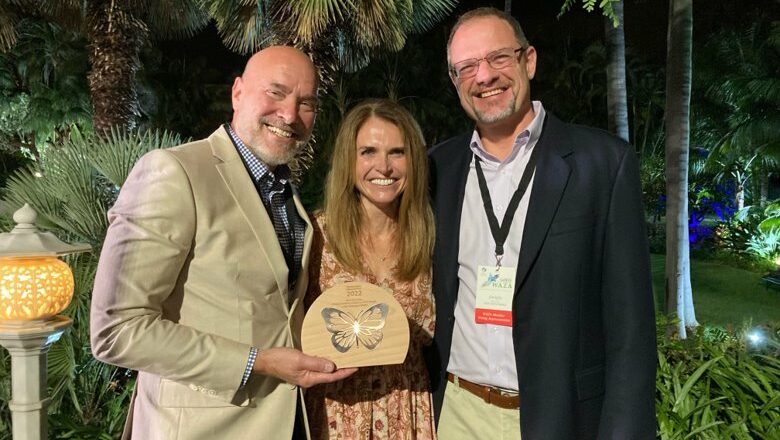The World Association of Zoos and Aquariums (WAZA) has awarded the Saint Louis Zoo WildCare Institute the WAZA conservation award for the Center for Avian Health in the Galápagos Islands.
The Center for Avian Health in the Galápagos Islands
The Center for Avian Health in the Galápagos Islands started 20 years ago as a collaboration between the Saint Louis Zoo WildCare Institute, the Veterinary Health Department at the Zoo and the University of Missouri-St. Louis Whitney R. Harris World Ecology Center. The Center studies the health of the unique birds in the Galápagos, working to understand and mitigate disease threats to prevent their extinction. The Center also trains Ecuadorian scientists and rangers to recognize and test for diseases. The relatively sheltered Pacific environment that protects these birds also makes them immunologically naïve and vulnerable to introduced pathogens. This requires ongoing surveillance and testing consistently. Based on these efforts, only one species has gone extinct since our partnership began thanks to the hard work of our partners — the Charles Darwin Foundation and the Galápagos National Park. Our partners have worked together to help recognize the risk and have established an “early warning system” based on long-term disease monitoring of Galápagos birds to prevent the spread of avian diseases.
Ron and Karen Goellner Center for Hellbender Conservation
Two other finalists were considered for the 2022 Conservation Award: North Carolina Zoo’s UNITE project and Saint Louis Zoo’s own Ron and Karen Goellner Center for Hellbender Conservation. The Ron and Karen Goellner Center for Hellbender Conservation works with the Missouri Department of Conservation (MDC) to breed Ozark and eastern hellbenders in human care. The decade-long collaboration between the MDC and the Zoo has yielded thousands of baby hellbenders and over 10,000 hellbenders have been released into rivers around Missouri.

